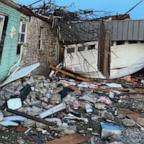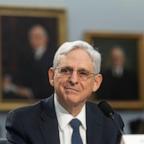Officials: Troops hurt by brain-injury focus
WASHINGTON -- The Pentagon and Department of Veterans Affairs are overemphasizing mild traumatic brain injury among combat troops at the expense of other medical problems that are going untreated, two Army mental health researchers say in an article that has raised intense objections from other scientists studying the condition.
Cols. Charles Hoge and Carl Castro say the military should scrap screening questions meant to uncover cases of mild traumatic brain injury (TBI) among troops returning from combat. Most troops who suffered a concussion in battle recovered within days of the injury, the researchers say.
Symptoms blamed on TBI after troops return home likely are due to depression, post-traumatic stress disorder (PTSD) or substance abuse, Hoge and Castro say, and the overemphasis on mild TBI keeps troops with those conditions from being properly treated.
Their article, published Thursday in The New England Journal of Medicine, says the Pentagon and VA are relying on flawed science to identify what the Pentagon estimates may be up 360,000 cases of brain injury suffered by veterans of the wars in Iraq and Afghanistan. Hoge and Castro have conducted some of the military's early and influential research on conditions such as PTSD.
Their arguments have convinced the Army's surgeon general, Gen. Eric Schoomaker, that the screening should be changed, says Schoomaker's spokeswoman, Cynthia Vaughan. But they also drew criticism from government and private brain-injury researchers who disagree with their findings and recommendations, which they say could leave injured troops without proper care.
It's too early to say that most troops recover from mild TBI as Hoge and Castro assert, says John Corrigan, an Ohio State University psychiatrist and researcher who advised the VA on its screening process. Without screening, troops with mild TBI risk may wind up like former professional football players who developed long-term neurological problems after suffering too many concussions, says David Hovda, director of the Brain Injury Research Center at UCLA.




